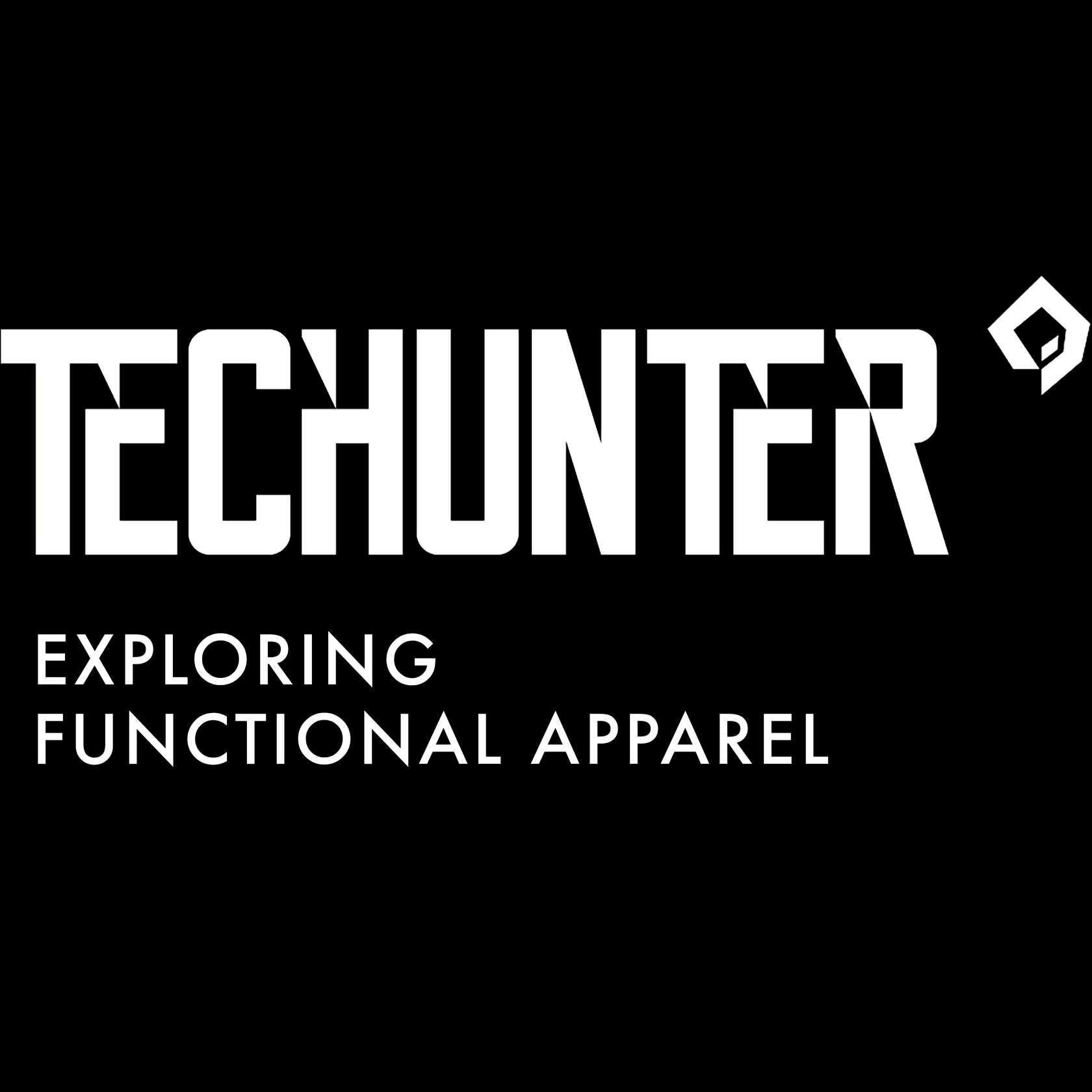Hector Mijangos [Interview]

Hector Mijangos [Interview]
Sometimes, looking through the photos of the #techwear hashtag, you can stumble upon very interesting personalities who are fond of technological clothing and sci-fi aesthetics. And most often thing, the age does not play any role in the fact that you really like. You've definitely seen this person because his appearance immediately attracts attention. And in this case, and inner peace, knowledge, and charm certainly not inferior to the opposite side of the scale. By happy coincidence, Hector has visited Moscow in February of this year. At the suggestion of our good friend Karen, we did not miss the opportunity to interview a person who has already become quite a popular in the "techwear"-culture.
Read more about how he created technological clothes 20 years before the modern trend, how to combine the music business and fashion design, as well as philosophical reflections on modern global problems of mankind and the industry.
Q: Аlexander Zabelin [TECHUNTER Editor-in-Chief].
A: Hector Mijangos [WWT, Noiselab, YUMMMIE, 2019].
Photo: TECHUNTER magazine, Hector's personal archive.
Q: Аlexander Zabelin [TECHUNTER Editor-in-Chief].
A: Hector Mijangos [WWT, Noiselab, YUMMMIE, 2019].
Photo: TECHUNTER magazine, Hector's personal archive.

[Please, introduce yourself, who you are and what you doing?]
My name is Hector Mijangos, I'm from Mexico. I went to engineering school in 80-s and then was going to university and became a fashion designer. At the same time, I was a radio DJ, we had a first electronic music show program in Mexico and promoted raves. And that was the inspiration base for me to do fashion. At the end of the 90-s, I decided to quit fashion and go straight to the music. I founded a record label called NoiseLab, which was a first big and independent label in all Latin America. We became a number one like Sony, Warner, and Armind labels. We were doing that until the collapse of the industry and we stopped selling records and became more like a design and communication company. At this point we making shows, concert promotion, video-content and mobile apps.
My name is Hector Mijangos, I'm from Mexico. I went to engineering school in 80-s and then was going to university and became a fashion designer. At the same time, I was a radio DJ, we had a first electronic music show program in Mexico and promoted raves. And that was the inspiration base for me to do fashion. At the end of the 90-s, I decided to quit fashion and go straight to the music. I founded a record label called NoiseLab, which was a first big and independent label in all Latin America. We became a number one like Sony, Warner, and Armind labels. We were doing that until the collapse of the industry and we stopped selling records and became more like a design and communication company. At this point we making shows, concert promotion, video-content and mobile apps.
[When you decided to start your own brand?]
I have always been a fan of fashion and I have the idea what I have to do. So, in late 90-s when the internet started to be popular, I said: "Ok, we need clothes for this kind of people." The first approach I had to techwear was a thinking about not as a garment but as a tool. It's funny because I did it 20 years ago. And if you saw one of my shows at that time now you can say, "Yeah, you can sell it now it will find his consumer". I was using Tyvek, stretch fabrics. I called it smart fabrics because you had the comfort of cotton but it also waterproofing by polyurethane coating. And it was in fashion industry before Gore-Tex and these kinda things. That line was called a "WorldWide Tribe" and we manufactured between more than 30 000 pieces every month. I was selling this to big department stores in Mexico, some Europe, and Asia stores, but my partners were afraid of not delivering the right quality and I was thinking of a huge deal with Japan. Then my partners said, "We don't want to do it, because if we do something wrong we will lose a lot of money". And it was like the beginning of the end. So, I was thinking of making music.
I have always been a fan of fashion and I have the idea what I have to do. So, in late 90-s when the internet started to be popular, I said: "Ok, we need clothes for this kind of people." The first approach I had to techwear was a thinking about not as a garment but as a tool. It's funny because I did it 20 years ago. And if you saw one of my shows at that time now you can say, "Yeah, you can sell it now it will find his consumer". I was using Tyvek, stretch fabrics. I called it smart fabrics because you had the comfort of cotton but it also waterproofing by polyurethane coating. And it was in fashion industry before Gore-Tex and these kinda things. That line was called a "WorldWide Tribe" and we manufactured between more than 30 000 pieces every month. I was selling this to big department stores in Mexico, some Europe, and Asia stores, but my partners were afraid of not delivering the right quality and I was thinking of a huge deal with Japan. Then my partners said, "We don't want to do it, because if we do something wrong we will lose a lot of money". And it was like the beginning of the end. So, I was thinking of making music.
[So you quit fashion design forever?]
Actually, not. Today I ran a label again, it called 2019. And it's
all about BladeRunner2019 [the action of original "Blade Runner"
movie is in Los-Angeles at 2019]. This is like a super inspiration for everything I do. Robots, future, cyber-stuff.
Actually, not. Today I ran a label again, it called 2019. And it's
all about BladeRunner2019 [the action of original "Blade Runner"
movie is in Los-Angeles at 2019]. This is like a super inspiration for everything I do. Robots, future, cyber-stuff.
[In your opinion, where did "techwear" culture begin from and what areas spawned this phenomenon?]
In my opinion, sci-fi is the thing before the military, before tech and etc. It is all about the desire of "stormtrooper SW look". The future is selling to us is what never existent. It also very military-oriented or influenced by. All drawings of "techwear culture" looks not like a regular guy but a soldier of future, with modular equipment and cyber implants. But there is no an exact rule of the perfect mix. It's the work of your own taste and some talent. Fashion designers are not fashion designers at all today, they are architects, engineers, and explorers.
In my opinion, sci-fi is the thing before the military, before tech and etc. It is all about the desire of "stormtrooper SW look". The future is selling to us is what never existent. It also very military-oriented or influenced by. All drawings of "techwear culture" looks not like a regular guy but a soldier of future, with modular equipment and cyber implants. But there is no an exact rule of the perfect mix. It's the work of your own taste and some talent. Fashion designers are not fashion designers at all today, they are architects, engineers, and explorers.
[Cyberpunk-looked jacket or minimalism-looked jacket?]
I've been a minimalist before being in techwear style. I've been in love with Bauhaus. I really like minimalist style, like Rick Owens, Yohji Yamamoto, Rei Kawakubo. Remembering the moment I've been in London at Dover Street Market for shopping and saw John Galliano [Christian Dior art-director of 96'-11'] checking all the details. And this
is the point, that clothing says for itself by the words of people who created it. They create clothing all of their lives, and this is incredible. They are more perfect than machines, they're more humans than humans. Which is very interesting. So, I would go for a minimalistic jacket.
I've been a minimalist before being in techwear style. I've been in love with Bauhaus. I really like minimalist style, like Rick Owens, Yohji Yamamoto, Rei Kawakubo. Remembering the moment I've been in London at Dover Street Market for shopping and saw John Galliano [Christian Dior art-director of 96'-11'] checking all the details. And this
is the point, that clothing says for itself by the words of people who created it. They create clothing all of their lives, and this is incredible. They are more perfect than machines, they're more humans than humans. Which is very interesting. So, I would go for a minimalistic jacket.
[What exact technologies and functions do you prefer in clothing firstly?]
It depends where you live. For example, here in Russia, you can't go like "I want to buy that jacket because it looks good" if it doesn't work with the environment. In Mexico, we can buy a jacket for its form, and we don't care whether it's waterproof. So, for me the first thing is "I like it, I want it, I get it". I bought the whole Nike ACG line, but I ordered it online and haven't the opportunity to check it by hand. I bought it because it looks good.
It depends where you live. For example, here in Russia, you can't go like "I want to buy that jacket because it looks good" if it doesn't work with the environment. In Mexico, we can buy a jacket for its form, and we don't care whether it's waterproof. So, for me the first thing is "I like it, I want it, I get it". I bought the whole Nike ACG line, but I ordered it online and haven't the opportunity to check it by hand. I bought it because it looks good.
[Do you hear about conscious consumption? Tell us please your opinion about mass-market clothing and its influence on the environment.]
The modern world is really collapsing. And we should take care of it.
We should use fabrics like more conscious. I don't sure that fashion or clothing designer is a good speaker for that, but the manufacturers should take care of it, like Nike, Levi's etc. Also about recycling materials. It's impossible to use such fabrics for small brands, but giants should do this today.
[Do you feel the technologies addiction?]
I'm super addicted to social media. Sometimes I woke up and the first thing to do is checking Instagram. It's an addiction but that is the way it is, that is the modern world like. And you shouldn't care too much about it. If you want, you can remove it quickly. I remember life before devices, an internet, mobiles. But without that, actually, we would never have met.
The modern world is really collapsing. And we should take care of it.
We should use fabrics like more conscious. I don't sure that fashion or clothing designer is a good speaker for that, but the manufacturers should take care of it, like Nike, Levi's etc. Also about recycling materials. It's impossible to use such fabrics for small brands, but giants should do this today.
[Do you feel the technologies addiction?]
I'm super addicted to social media. Sometimes I woke up and the first thing to do is checking Instagram. It's an addiction but that is the way it is, that is the modern world like. And you shouldn't care too much about it. If you want, you can remove it quickly. I remember life before devices, an internet, mobiles. But without that, actually, we would never have met.
[Your opinion about cyber augmentation? If you will have this opportunity to implant some stuff, do you do this?]
I think that is interesting. But it's pretty weird: it is gonna be amazing, but at the same time you don't have to do anything else. Do you really want to live your life like a robot? It's like the next Spielberg movie, we will living in metrics with implanted chips. Not my reality at all.
[What is your daily routine?]
Waking up, take a look at my phone, to understand what is going on, sometimes answering e-mails. Then have a breakfast, see my dogs and get my bike. I sold my car 3 years ago because for me the better thing is to ride my bike and I commute by bike every single day. I go to my office, it's very big and there we manage a lot of projects. We have meetings, lunch, dinner during the day because basically, I working all day long.
I think that is interesting. But it's pretty weird: it is gonna be amazing, but at the same time you don't have to do anything else. Do you really want to live your life like a robot? It's like the next Spielberg movie, we will living in metrics with implanted chips. Not my reality at all.
[What is your daily routine?]
Waking up, take a look at my phone, to understand what is going on, sometimes answering e-mails. Then have a breakfast, see my dogs and get my bike. I sold my car 3 years ago because for me the better thing is to ride my bike and I commute by bike every single day. I go to my office, it's very big and there we manage a lot of projects. We have meetings, lunch, dinner during the day because basically, I working all day long.

[3 favourite brands/designers]
– Acronym and all Errolson designs;
– Yohji Yamamoto;
– Undercover.
[3 favorite/main personalities who influenced you the most]
– Ridley Scott [Film director and producer, "Alien"/"BladeRunner"];
– Ludwig Mies van der Rohe [Bauhaus director in 30-s, modernist-architect];
– Peter Saville [graphic designer from Manchester, author of famous Joy Division album cover "Unknown Pleasures"];
– Yohji Yamamoto [fashion designer, Y3].So hard to choose 3.
– Acronym and all Errolson designs;
– Yohji Yamamoto;
– Undercover.
[3 favorite/main personalities who influenced you the most]
– Ridley Scott [Film director and producer, "Alien"/"BladeRunner"];
– Ludwig Mies van der Rohe [Bauhaus director in 30-s, modernist-architect];
– Peter Saville [graphic designer from Manchester, author of famous Joy Division album cover "Unknown Pleasures"];
– Yohji Yamamoto [fashion designer, Y3].So hard to choose 3.
[What is your reason to visit Moscow?]
Actually, I really fascinated by the all Russian culture. Just driving and watching building here is amazing. The importance of the mass. Awesome! Basically, all the Bauhaus works are very Russian-inspired. Our visit is that we had a chance to choose the concert of Depeche Mode, and they said: "Where do you want to go in Europe to the concert?". And we choose Moscow. I love this city, but the taxi drivers taking too much for the trip. [laughs]
Actually, I really fascinated by the all Russian culture. Just driving and watching building here is amazing. The importance of the mass. Awesome! Basically, all the Bauhaus works are very Russian-inspired. Our visit is that we had a chance to choose the concert of Depeche Mode, and they said: "Where do you want to go in Europe to the concert?". And we choose Moscow. I love this city, but the taxi drivers taking too much for the trip. [laughs]

Special thanks for the help in organizing and performing the interview :
– Gleb Kirenkov [Techunter Design Studio, Nameless, No diploma arch];
– Karen ArtYan [Karen ArtYan].
– Gleb Kirenkov [Techunter Design Studio, Nameless, No diploma arch];
– Karen ArtYan [Karen ArtYan].
Dear readers, here is more news for you. Conversation with Hector was so interesting and sincere that we decided to divide the interview on 2 parts. The second part will be published in the 4th issue of printed TECHUNTER magazine, also in two languages. There Senior Mijangos told us about the difficulties of clothing production at the turn of the century, in the late 90-s, his WWT brand and about the industry itself 20 years ago. The magazine is scheduled for release in early June this year. About the announcements, we will report separately. Thank you for your attention to our work and do not forget to share exclusive and authentic material with your audience, because only in this way, together we can develop our industry!



